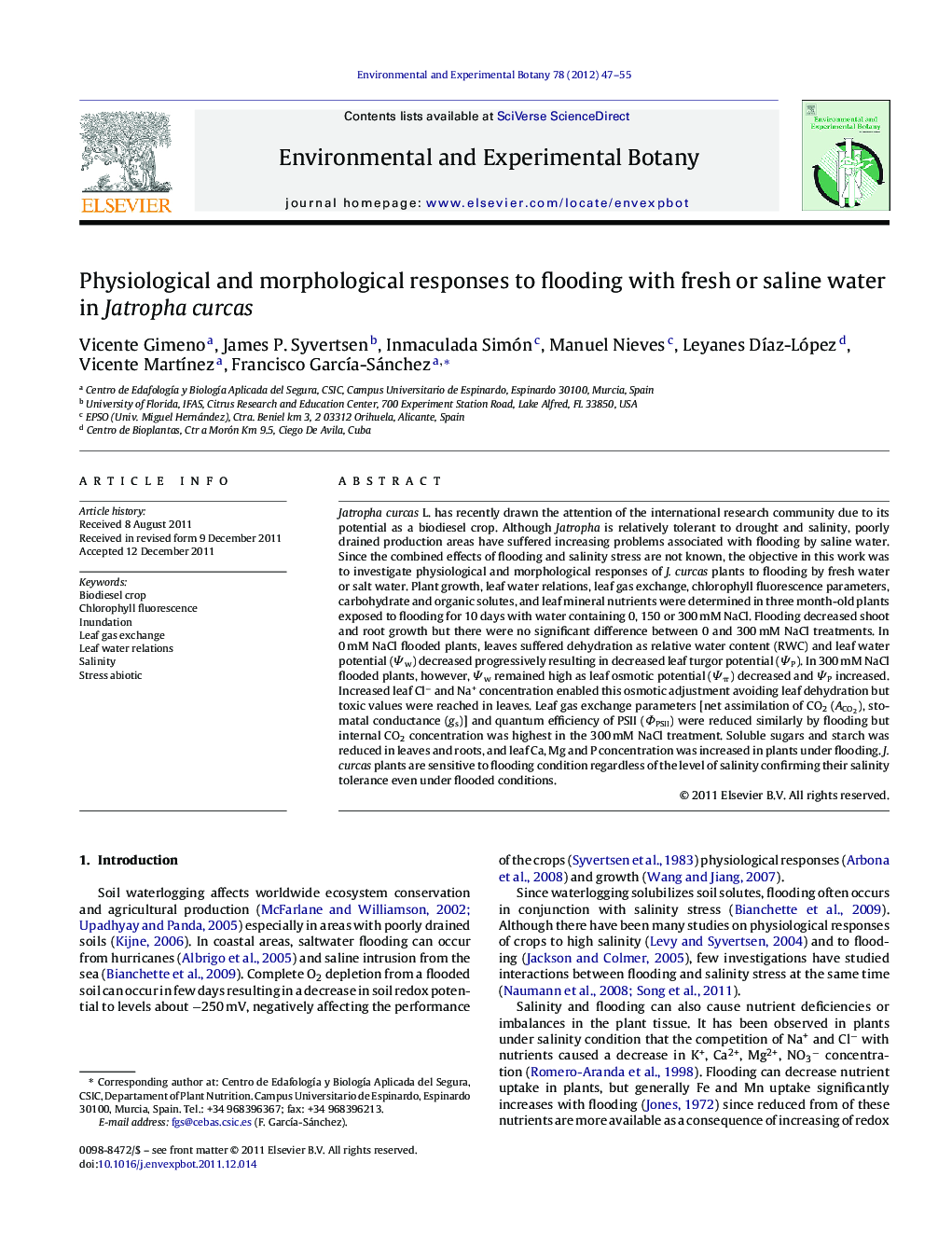| Article ID | Journal | Published Year | Pages | File Type |
|---|---|---|---|---|
| 4554735 | Environmental and Experimental Botany | 2012 | 9 Pages |
Jatropha curcas L. has recently drawn the attention of the international research community due to its potential as a biodiesel crop. Although Jatropha is relatively tolerant to drought and salinity, poorly drained production areas have suffered increasing problems associated with flooding by saline water. Since the combined effects of flooding and salinity stress are not known, the objective in this work was to investigate physiological and morphological responses of J. curcas plants to flooding by fresh water or salt water. Plant growth, leaf water relations, leaf gas exchange, chlorophyll fluorescence parameters, carbohydrate and organic solutes, and leaf mineral nutrients were determined in three month-old plants exposed to flooding for 10 days with water containing 0, 150 or 300 mM NaCl. Flooding decreased shoot and root growth but there were no significant difference between 0 and 300 mM NaCl treatments. In 0 mM NaCl flooded plants, leaves suffered dehydration as relative water content (RWC) and leaf water potential (Ψw) decreased progressively resulting in decreased leaf turgor potential (ΨP). In 300 mM NaCl flooded plants, however, Ψw remained high as leaf osmotic potential (Ψπ) decreased and ΨP increased. Increased leaf Cl− and Na+ concentration enabled this osmotic adjustment avoiding leaf dehydration but toxic values were reached in leaves. Leaf gas exchange parameters [net assimilation of CO2 (ACO2ACO2), stomatal conductance (gs)] and quantum efficiency of PSII (ΦPSII) were reduced similarly by flooding but internal CO2 concentration was highest in the 300 mM NaCl treatment. Soluble sugars and starch was reduced in leaves and roots, and leaf Ca, Mg and P concentration was increased in plants under flooding. J. curcas plants are sensitive to flooding condition regardless of the level of salinity confirming their salinity tolerance even under flooded conditions.
► Jatropha curcas plants are a flood-sensitive species in freshwater and saltwater condition. ► The flooding reduced leaf gas exchange and chlorophyll fluorescence parameters. ► In freshwater, leaf dehydration is caused by decreased root hydraulic conductance. ► In saltwater, Cl− and Na+ toxicity reduced ACO2ACO2 and carbohydrate concentrations. ► J. curcas plants are sensitive to flooding regardless of the level of salinity.
